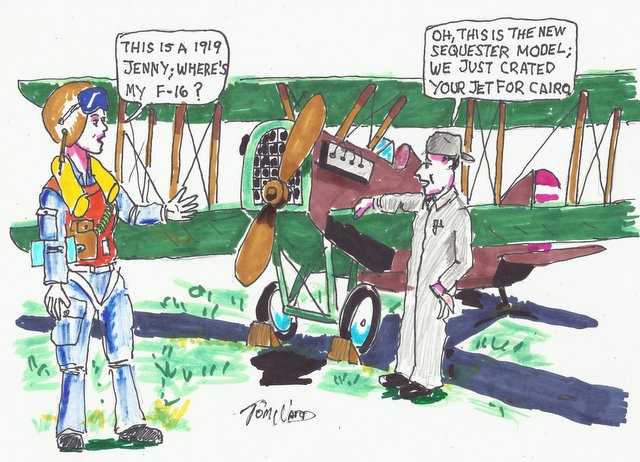Sunday, March 31, 2013
Saturday, March 30, 2013
Friday, March 29, 2013
Thursday, March 28, 2013
Wednesday, March 27, 2013
Tuesday, March 26, 2013
Monday, March 25, 2013
Sunday, March 24, 2013
Saturday, March 23, 2013
Near the middle of the 19th Century, American
fisherman sought whales near the waters close to Japan. As would
happen, some of the vessels would flounder and beach upon Japanese
shores.
The crews were interned by the Tokugawa government and subsequently became the object of ransom.
The United States government realized the Japanese position was little more than extortion and, in 1846, dispatched a naval squadron under the command of Commodore James Biddle to negotiate an agreement with Edo (later to be called Tokyo.) The aim was to deter the Japanese from exploiting the sea disasters. Biddle was also charged with reclaiming the American whaling crewmen.
Since Edo Bay was too shallow to accommodate the massive US warships, the Japanese dispatched small boats out to Biddle's squadron to escort the commodore and his aides to the emperor's palace. A Japanese sailor unceremoniously shoved Commodore Biddle to the bottom of one of the small boats.
The Japanese officers who witnessed this were embarrassed by this dishonorable act by one of their enlisted men and expected that Biddle would, justifiably in their code, shoot the offender on sight. Biddle, however, did the Western, honorable thing. He regarded the sailor's behavior as unfortunate but not worthy of execution.
To the Western mind, the commodore's response would be lauded as a magnanimous gesture of forgiveness. To the Japanese, however, Biddle's course indicated an inherent weakness of character. The word soon reached the palace that the Americans were not honorable men. The emperor refused to confer with the delegation and the American seaman would stay in Japanese custody for another seven years until Commodore Matthew Perry entered Edo Bay with guns firing at ships full of Samurai warriors. The Japanese honored that type of approach. Perry opened Japan and the whalers were released.
History is replete with examples when weakness emboldens an enemy (e.g. the 1938 Munich Conference.) President Obama's empty rhetoric and lack of policy direction only encourages the jihadist states to dismiss us as ineffective. He does not understand the need to deal from a position of definite assertiveness rather than from dishonorable appeasement.
In 1853, we learned the lessons of the history of 1846. Unfortunately, this president denies the lessons of history, and as Georges Santayana alluded, Obama is doomed to repeat the mistakes of those who compromise on conviction. Even sadder, Israel and even our own national security are both at risk.
The crews were interned by the Tokugawa government and subsequently became the object of ransom.
The United States government realized the Japanese position was little more than extortion and, in 1846, dispatched a naval squadron under the command of Commodore James Biddle to negotiate an agreement with Edo (later to be called Tokyo.) The aim was to deter the Japanese from exploiting the sea disasters. Biddle was also charged with reclaiming the American whaling crewmen.
Since Edo Bay was too shallow to accommodate the massive US warships, the Japanese dispatched small boats out to Biddle's squadron to escort the commodore and his aides to the emperor's palace. A Japanese sailor unceremoniously shoved Commodore Biddle to the bottom of one of the small boats.
The Japanese officers who witnessed this were embarrassed by this dishonorable act by one of their enlisted men and expected that Biddle would, justifiably in their code, shoot the offender on sight. Biddle, however, did the Western, honorable thing. He regarded the sailor's behavior as unfortunate but not worthy of execution.
To the Western mind, the commodore's response would be lauded as a magnanimous gesture of forgiveness. To the Japanese, however, Biddle's course indicated an inherent weakness of character. The word soon reached the palace that the Americans were not honorable men. The emperor refused to confer with the delegation and the American seaman would stay in Japanese custody for another seven years until Commodore Matthew Perry entered Edo Bay with guns firing at ships full of Samurai warriors. The Japanese honored that type of approach. Perry opened Japan and the whalers were released.
History is replete with examples when weakness emboldens an enemy (e.g. the 1938 Munich Conference.) President Obama's empty rhetoric and lack of policy direction only encourages the jihadist states to dismiss us as ineffective. He does not understand the need to deal from a position of definite assertiveness rather than from dishonorable appeasement.
In 1853, we learned the lessons of the history of 1846. Unfortunately, this president denies the lessons of history, and as Georges Santayana alluded, Obama is doomed to repeat the mistakes of those who compromise on conviction. Even sadder, Israel and even our own national security are both at risk.
Friday, March 22, 2013
Thursday, March 21, 2013
Wednesday, March 20, 2013
Monday, March 18, 2013
Saturday, March 16, 2013
Wednesday, March 13, 2013
Tuesday, March 12, 2013
Monday, March 11, 2013
Thursday, March 7, 2013
Wednesday, March 6, 2013
Saturday, March 2, 2013
Subscribe to:
Comments (Atom)



















































